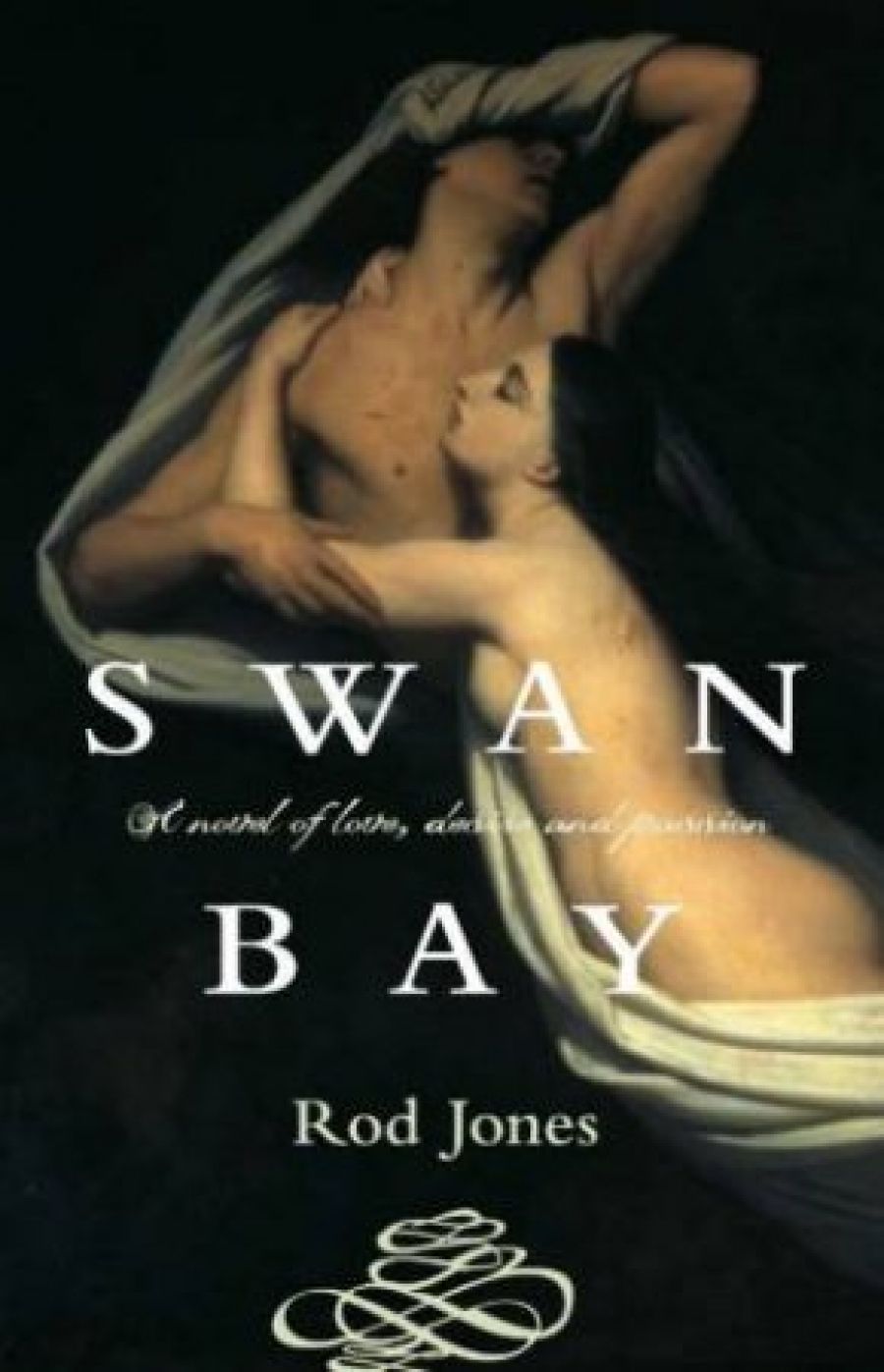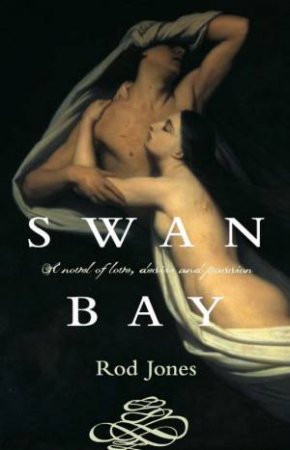
- Free Article: No
- Contents Category: Fiction
- Review Article: Yes
- Article Title: Fiction
- Online Only: No
- Custom Highlight Text:
Reading Swan Bay, one is quickly struck by a sense of the familiar. A damaged, misanthropic man meets a damaged, unbalanced woman. He attempts to penetrate her almost mystical reserve and, in the book’s central flashback sequence, she recounts the past that has almost destroyed her. Back in the present, the truth of her account seems uncertain. The two achieve some sort of equilibrium. This narrative outline could equally be applied to almost any of the novels of Rod Jones.
- Book 1 Title: Swan Bay
- Book 1 Biblio: Vintage, $19.95 pb, 174 pp
- Book 1 Cover Small (400 x 600):

- Book 1 Cover (800 x 1200):

While these skills are once again on display in Swan Bay, when the narrator unleashes a spray of vitriol at the expense of aspiring writers – ‘as if the world doesn’t already have too many books’ – it is hard not to question whether Jones uses Swan Bay to explore new territory. This time around, Jones has returned his focus to Australia, and his own Queenscliff (slightly disguised) takes centre stage. As in Nightpictures, the narrator is a writer – or at least an ‘ex-writer’ – who is all but done with the world and other people. Journalists ‘live by flinging words like dirt, instead of cultivating them’. Academics ‘start out all angry and original. But then they become mere tinkerers with others’ words.’ Nobody is spared his wrath until he becomes fascinated with his new neighbour, a young woman with ‘the arrogance of the mystic’.
Virgil, named after the Mantuan Swan by her classicist father, is in Swan Bay for her swansong, a metaphor that is somewhat laboured towards the novel’s end. It is a relief that she is not a good enough poet for her soul to pass into a swan when she dies. The narrator’s fascination with her is initially just the ‘soul espionage’ of a writer, but it quickly becomes a clash between his sardonic dismissiveness and Virgil’s mystical superstition. When Marcus and Lolita Naseby, the villains of the piece, are introduced, they bring with them an explanation for what the narrator initially dubs Virgil’s ‘Fashionable Fatigue Syndrome’.
There are wonderful things in this book. Jones is a master of the sensual, visceral pause after a moment of frantic movement. After one of Virgil’s ‘nerve’ attacks, the narrator stands in the ‘resentful fluorescent light of her kitchen … wait[ing] until I could smell the seductive promise of the gas before I struck the match’. In sharp contrast with such moments of quiet contemplation, the description of ‘the catastrophe’ that has destroyed Virgil is brutal and distressing. Its power helps us to feel sad for our otherwise flaky heroine. Jones recognises the importance of this scene, and his stark prose creates a devastating tableau. Her inconsistencies and excesses suddenly make horrific sense.
But Marcus Naseby’s vicious accusation that Virgil is like a ‘fucking Madonna’ has some unsettling resonance in Swan Bay. Jones is guilty of depicting women as either Madonnas or whores, or at the very least victims or villains. When he notes that ‘Lolita was the kind of woman we men look at as chicken to be eaten’, the ‘we’ leaves little doubt as to whom the narrator believes is listening. This simplicity in drawing Virgil as the sentimental core of the novel renders unconvincing the narrator’s epiphanic conversion from a misanthrope who regards other people as ‘meat’, to someone who earnestly declares: ‘I have come to see how important friendships are. They are the fabric, the very stuff of our lives.’
Equally frustrating is the effort Jones puts into creating and bolstering the illusion of profundity. Light bulbs flicker, thunder ‘feels like something more’, an ancient force shapes the lives of his characters. Ultimately, these seem like meaningless allusions and hollow symbolism. Why does Virgil believe herself to be like Dido? If Marcus Naseby is her Aeneas, then wouldn’t it make more sense for her to commit herself to flames when he betrays her? The emptiness of such narrative conceits means that large sections of Swan Bay are overwritten and overwrought. The Nasebys do not simply taste wine: ‘They sat with awe-struck faces as the wine burnished their mouths and rendered their tongues bronze and metallic.’
The most striking example of this philosophical emptiness lies in the novel’s interaction with the Aeneid. Like Dante before her, Jones’s stricken heroine takes Virgil for her guide, in this case through the ancient practice of ‘sortes vergilianae … a kind of supernatural guidance: letting your finger find the passage which your mind needs just now’. My own, quick game of sortes vergilianae with a copy of Swan Bay produced the following paragraph: ‘The swans were noisy now, this last hour of the day. As night approached, their cries grew frantic; the air was full of their excited noise. There must have been thousands of them here at the edge of Swan Bay, like spirits getting ready to cross.’ The sound and fury of the swans seem profound. I’m just not sure it means anything.


Comments powered by CComment